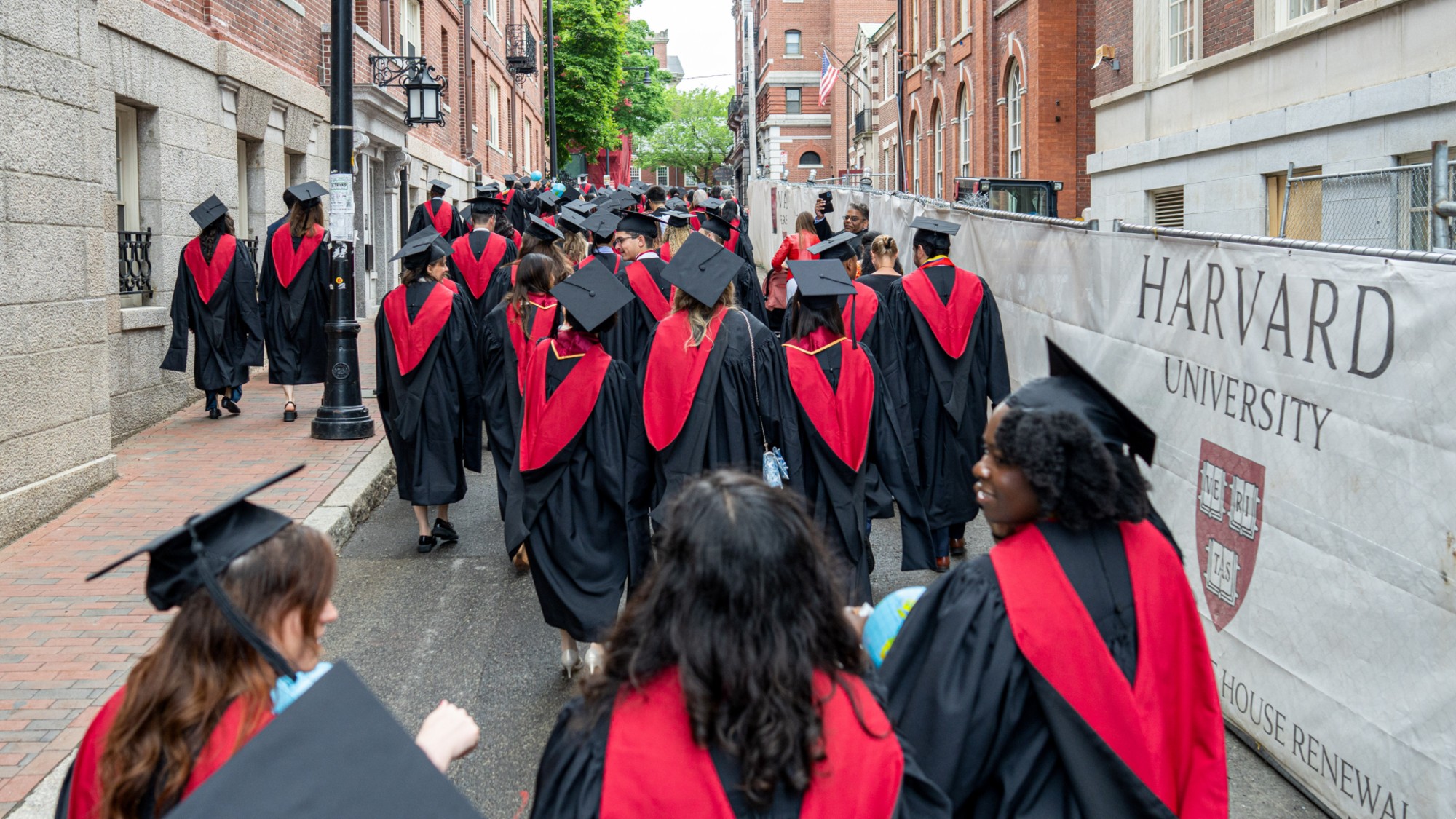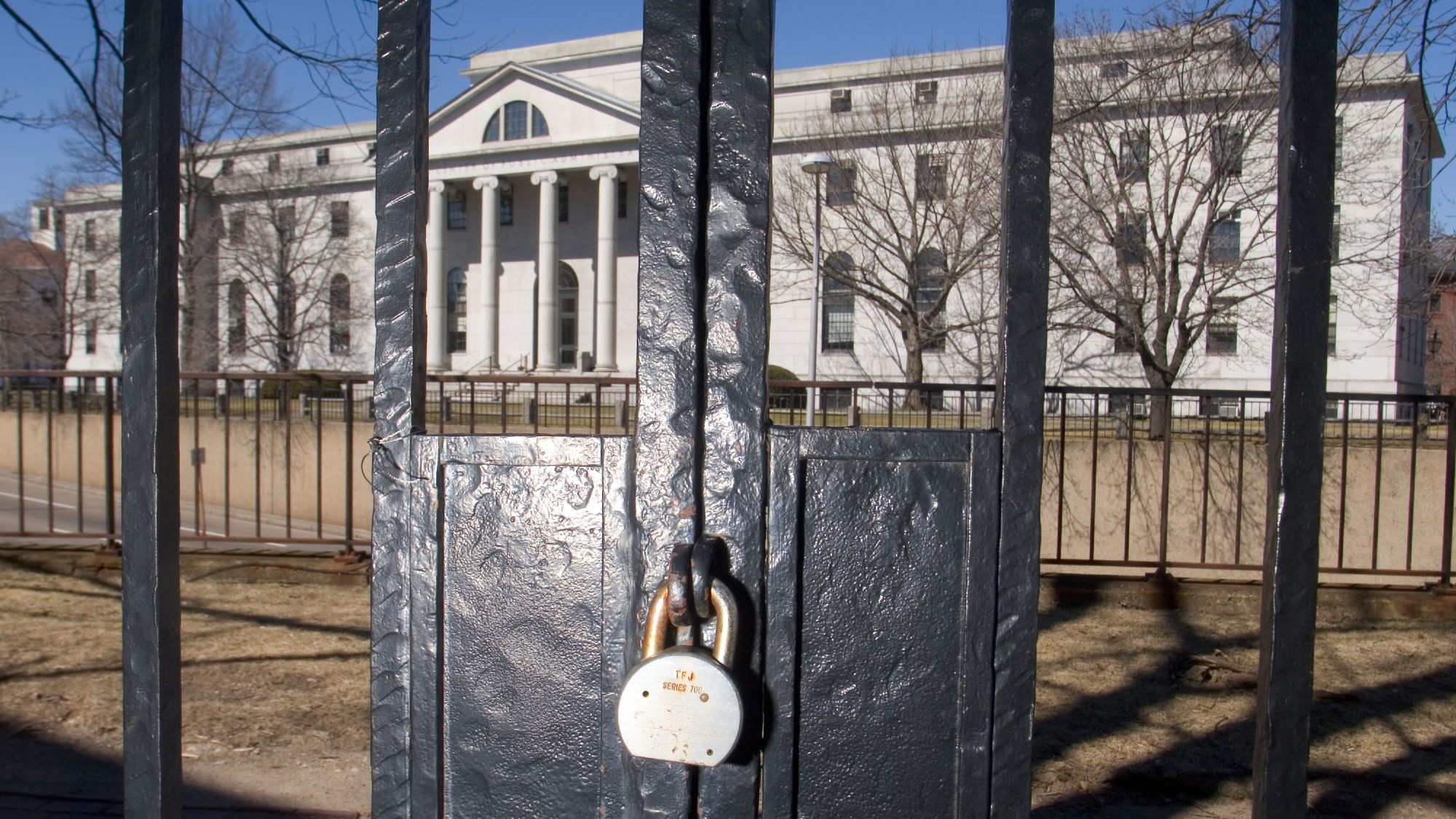Strapped for cash: why are Britain’s universities running out of money?
Institutions put on warning list owing to ‘unrealistic’ student intake projections

A free daily email with the biggest news stories of the day – and the best features from TheWeek.com
You are now subscribed
Your newsletter sign-up was successful
One in five British universities has been placed on a financial risk list by regulators.
Figures released by the Office for Students (OfS) show that 71 universities or institutions registered with it have been put on “enhanced monitoring”, as regulators are worried about their finances.
In the majority of cases, the step has been taken because of concerns that the universities’ forecasts of growth in student numbers have “little or no supporting evidence about how that would be achieved”, according to an OfS report.
The Week
Escape your echo chamber. Get the facts behind the news, plus analysis from multiple perspectives.

Sign up for The Week's Free Newsletters
From our morning news briefing to a weekly Good News Newsletter, get the best of The Week delivered directly to your inbox.
From our morning news briefing to a weekly Good News Newsletter, get the best of The Week delivered directly to your inbox.
Why is the regulator concerned about university finances?
The Times reports that many institutions were put on the regulator’s warning list because they had made “unrealistic projections of international student numbers”. International students pay higher tuition fees to study in the United Kingdom.
Some universities had borrowed money based on higher numbers of student projections and the tuition fees they bring, despite uncertainty about future student enrollment figures.
Institutions are also required to set out plans for how their students will be protected in the event of a university closing. The OfS found these plans to be “very poor” at many universities.
A free daily email with the biggest news stories of the day – and the best features from TheWeek.com
Susan Lapworth, director of competition and registration at OfS, said: “Too many providers glossed over the possibility of closure in their student protection plans, or relied on ambitious projections for student recruitment when making financial plans,” reports The Independent.
The OfS report added that a “significant number” of providers have been subject to action because of worries about their financial sustainability.
Did the regulator find other problems in British universities?
Additional factors that can result in the regulator intervening include poor student outcomes, management and governance.
In many cases, the OfS report found that regulators had intervened because of concerns over access and participation plans for underrepresented groups.
Lapworth added: “The analysis shows, starkly, that universities must improve the work they do to ensure that students from disadvantaged backgrounds are supported not only to get into higher education, but to get on, too.”
Joe Evans is the world news editor at TheWeek.co.uk. He joined the team in 2019 and held roles including deputy news editor and acting news editor before moving into his current position in early 2021. He is a regular panellist on The Week Unwrapped podcast, discussing politics and foreign affairs.
Before joining The Week, he worked as a freelance journalist covering the UK and Ireland for German newspapers and magazines. A series of features on Brexit and the Irish border got him nominated for the Hostwriter Prize in 2019. Prior to settling down in London, he lived and worked in Cambodia, where he ran communications for a non-governmental organisation and worked as a journalist covering Southeast Asia. He has a master’s degree in journalism from City, University of London, and before that studied English Literature at the University of Manchester.
-
 Political cartoons for February 16
Political cartoons for February 16Cartoons Monday’s political cartoons include President's Day, a valentine from the Epstein files, and more
-
 Regent Hong Kong: a tranquil haven with a prime waterfront spot
Regent Hong Kong: a tranquil haven with a prime waterfront spotThe Week Recommends The trendy hotel recently underwent an extensive two-year revamp
-
 The problem with diagnosing profound autism
The problem with diagnosing profound autismThe Explainer Experts are reconsidering the idea of autism as a spectrum, which could impact diagnoses and policy making for the condition
-
 American universities are losing ground to their foreign counterparts
American universities are losing ground to their foreign counterpartsThe Explainer While Harvard is still near the top, other colleges have slipped
-
 Where will international students go if not the US?
Where will international students go if not the US?Talking Points China, Canada and the UK are ready to educate the world
-
 Colleges are canceling affinity graduations amid DEI attacks but students are pressing on
Colleges are canceling affinity graduations amid DEI attacks but students are pressing onIn the Spotlight The commencement at Harvard University was in the news, but other colleges are also taking action
-
 Can Trump ban overseas students from US universities?
Can Trump ban overseas students from US universities?Today's Big Question President's decision to revoke Harvard's access to database for admitting international students 'drastically escalates' the dispute
-
 America's academic brain drain has begun
America's academic brain drain has begunIN THE SPOTLIGHT As the Trump administration targets universities and teachers, educators are eying greener academic pastures elsewhere — and other nations are starting to take notice
-
 Is academic freedom in peril?
Is academic freedom in peril?Today's Big Question Faculty punishments are on the rise
-
 Anti-Israel protests impact a Jewish-rooted university
Anti-Israel protests impact a Jewish-rooted universityThe Explainer The president of Brandeis University resigned as a result of multiple factors, including his handling of recent protests
-
 Why are so many colleges closing?
Why are so many colleges closing?Today's Big Question 'Enrollment cliffs' and higher tuition both play a role